![Studer, Daniel: Extended II <i>[Used Item]</i> (ezz-thetics by Hat Hut Records Ltd) Studer, Daniel: Extended II <i>[Used Item]</i> (ezz-thetics by Hat Hut Records Ltd)](https://www.teuthida.com/productImages/misc4/34198.jpg)
Presented in two sonic rendering, one for stereo playback and a binaural mix for headophones, this exceptional 2021 chamber jazz string performance at Kunstraum Walcheturm in Zurich displays spectacular technique and concentration, from the quintet of Daniel Studer (double bass), Harald Kimmig (violin), Frantz Loriot (viola), Alfred Zimmerlin (violoncello) and Philip Zoubek (piano).
In Stock
Quantity in Basket: None
Log In to use our Wish List
Shipping Weight: 3.00 units
Sample The Album:
Daniel Studer-compositions, double bass
Harald Kimmig-violin
Frantz Loriot-viola
Alfred Zimmerlin-violoncello
Philip Zoubek-piano
Click an artist name above to see in-stock items for that artist.
UPC: 752156104421
Label: ezz-thetics by Hat Hut Records Ltd
Catalog ID: ezz-thetics 1044
Squidco Product Code: 34854
Format: CD
Condition: VG
Released: 2023
Country: Switzerland
Packaging: Cardboard Gatefold
Recorded live at Kunstraum Walcheturm in Zurich, Switzerland on November 14th, 2021, by
This is a USED (previously owned) item
"Who pays any mind to liner notes? Who gives record reviews any attention? One might put these questions in a different form. Do we need to know what an artist intends by a work of art in order to appreciate it? Does it matter a damn how someone sitting in a room with a stereo system very much the same as our own reacts to the very same music we are listening to, right now? As someone who both reviews and writes the occasional liner (the proviso in the second case being that the writer admires the artist and work concerned, which takes care of this writer's never-to-be-written review of Daniel Studer's Extended II) I obviously have to believe that both are useful, hopefully valuable contributions to the social practice of listening to music, sharing it and coming to mutually agreed or sometimes diametrically opposite views of it.
Does anyone notice liner notes? I was mildly perturbed - and possibly a little flattered - that someone referred to a liner note I wrote for Daniel's Extended I, which came out on this label a few years ago. The reviewer referred to my discussion of the music in terms of work - industrial and artisan, in both command and laissez-faire economies - as being "eyebrow-raising", which I took to mean "dubious". A few lines later, the writer conceded that there might be a point, after all, though he didn't sound wholly convinced.
Work, to me, is the absolute value. It's a word and a concept that stretches all the way from a very basic element of physics to the highest achievements of art, so it's a word that matters very much and when I refer to Daniel Studer's work, here with his colleagues Harald Kimmig, Philip Zoubek, Frantz Loriot and Alfred Zimmerlin, I use that word not just as a casual reference to a title or opus number, but to refer to the whole process of its creation, from the first idea, the phone calls, the setting up of instruments, to the moment the air moves and vibrations reach our ears. If this sounds high-flown or pretentious, it's a simple enough default position.
When I was a student one of the key critical texts of the time was an essay in a collection by W. K. Wimsatt and Monroe C. Beardsley called The Verbal Icon. It was published the year I was born and so has always seemed part of my cultural Zeitgeist, even though I reject much of it. The essay in question was called "The Intentional Fallacy". It basically said that an artist's intentions and purpose were irrelevant to appreciating their work. At the same time, we were being force-fed the English philosopher R. G. Collingwood, who went further and said that the artist couldn't know what they were creating; the work emerged through the process of creation and could take any turn that suggested itself in the moment. This may be music, literally, to the ears of an improviser, but it does tend to lead to the worrying possibility that in King Lear Shakespeare set out to write a comedy, but happened to write a tragedy instead. And how astonished he must have been!
All artists understand the happy accident, the moment when their most precise intentions are subverted by some unexpected event: a word that springs unbidden to the poet's mind, a note or phrase that the composer didn't see coming, a splash of paint that feels so right one doesn't take a rag to it. The work always lies in the careful balancing of intention and accident, purpose and circumstance. What I admire profoundly about Daniel Studer's music (not to overturn anything said about the original Extended, is how thoroughly he understands (or intuits) this.
Extended II reaches out and wraps around the audience. There is a binaural mix intended to be listened to on headphones, where even the distinction between music and listener is blurred. In a live performance the instruments are arrayed around the audience, with sound falling on the ear not from one privileged angle or source, but as part of the listening environment. The organisation of sounds, Studer insists and you will hear, ranges from the very strict to the chaotic. When he refers to the "Ursuppe", he is directing us to the most familiar account of how life evolved on our planet, in the regular slop and drying of marginal pools round a great ocean whose rhythms are governed by moon and sun in highly complex configurations. The middle section of Extended II is a sonic metaphor for these processes. It is about the work of creation. Those who see that last word with a capital letter require there to be something else involved. If the Creation requires a deity, then by extension the work of art requires an omniscient Creator who knows exactly what is happening. One secular version, encouraged by popular Darwinism, of the moment of creation is that a flash of lightning quickened the primordial soup one day and modest life began, but that is just to put lightning in the place of God. A real secular, or humanist, version says that art, like life, emerges out of steady work, an intimate knowledge of the components of sound and the instruments we have constructed to communicate it.
Extended II seems to me to illustrate the same point as its predecessor. These are men at work. The work is sound, as projected in three dimensions and across time. The composition is the realisation of that process of work. Old philosophers used to refer to reality - the solid bricks-and-mortar and fellow-beings that surrounded us - as "the extended world" or as "extensions", and that applies to the music you are holding. It extends because it exists in space and time, and it also extends, in the other sense, what we believe music to be."-Brian Morton, October 2022
Artist Biographies
• Show Bio for Daniel Studer "Daniel Studer was born in Zürich in 1961, lived and worked in Rome from 1981 to 1995, is now living with his family in Zurich.Master of arts in Music Pedagogy, guest composer at the Elektronisches Studio in Basel, studied composition with Johannes Schöllhorn.2010 award from the city of Zurich. His focus lies on improvisation and mixed forms of improvisation and composition. He participated in various projects involving space - and projects with live electronics; further fields of interest are music and language, music and dance, music and video poetry. The constant exploration of his instrument has led to performances as a soloist, too.For years he has been working with Peter K Frey, Mischa Käser, Katharina Klement, Giancarlo Schiaffini, Dieter Ulrich and Alfred Zimmerlin.Presently he is part of the Kontrabassduo Studer-Frey, Kimmig-Studer-Zimmerlin, III-VII-XII (with Mischa Käser and Urs Haenggli) and the trio Gabriela Friedli Trio. Concerts and radio recordings in Europe, Japan and USA. Among others he played with Lester Bowie, Jacques Demierre, Michel Doneda, Paolo Fresu, Gerry Hemingway, Steve Grossmann, Barney Kessel, Hans Koch, Riccardo Lay, Joëlle Léandre, Magda Mayas, Mike Melillo, Evan Parker, Antonello Salis, Irene Schweizer, Tony Scott, Co Streiff, Sebi Tramontana, Massimo Urbani, Urs Voerkel, Bobby Watson and many others. Records with the Kontrabassduo Studer-Frey, Kimmig-Studer-Zimmerlin, Giancarlo Schiaffini Quintet, Gabriela Friedli Trio, Solo, In Transit, Eichenbergers Domino, Day & Taxi, Käppeli-Lüscher-Studer, Streichtrio Coen-Penazzi-Studer on labels as Intakt,Unit Records, EMANEM, Konnex, Percaso, Creative Sources, Edition RZ. Festivals: Controindicazioni Roma, Le Mans Jazz Festival, Südtirol Jazz Festival Bozen, Clusone Jazz, Ulrichsberger Kaleidophon, Unerhört! Zürcher Jazzfestival, Willisau Jazz Festival, Zoom in Bern, Schaffhauser Jazzfestival, Limmitantiones, Romaeuropa, Zürcher Theaterspektakel, World New Music Days, Honmoku Jazz Festival Yokohama, Jazz and more München, Siena Jazz, Progetto Musica Roma He has been teaching improvisation at different music schools so at the Bern University of the Arts since 2006." ^ Hide Bio for Daniel Studer • Show Bio for Harald Kimmig "Harald Kimmig (born October 9, 1956 in Offenburg ) is a German violinist of free improvisational music and composer. Kimmig had violin lessons from 1966 to 1974, and from 1975 to 1982 he studied philosophy, sociology and art history. He took classes at Leszek Zadlo, Muneer Abdul Fataah, John Tchicai and Cecil Taylor. From 1984 he was active as a professional musician, initially with soloists and as a member of the First Improvising String Orchestra. He played in the trio with Georg Wolf and Lukas Lindenmaier (CD rif-rif 1990) and is co-leader of F-Orkestra, who worked with musicians such as Buddy Collette or Peter Kowald. He also played with the ensemble of Cecil Taylor (CDs "Legba Crossing", "Corona"), John Tchicai, Vladimir Chekassin, Doug Hammond, Lee Konitz, Tony Oxley, Gabriele Hasler, Sirone and Jrgen Wuchner. He works in the trio with Carl Ludwig Hbsch and L Quan Ninh. He is also a member of the ensembles of Angelika Sheridan, Graldine Keller and Hideto Heshiki. Together with Norbert Rodenkirchen he composed the Aura Christinae in 2004, which repeatedly performed in Stommeln (u. A. With Maria Jonas and Albrecht Maurer ). Kimmig also writes string quartets and major orchestral works ('The Course of Light and Darkness', Oratorio, 1999) as well as film music." ^ Hide Bio for Harald Kimmig • Show Bio for Frantz Loriot "French-Japanese violist Frantz Loriot performs solo as well as in various ensembles by way of improvisation and electronics, crossroads of different musical genres: improvised music, experimental, rock, contemporary music and electronics. He has contributed to multidisciplinary projects related to dance, image and poetry. Frantz Loriot leads two large ensembles, the European Notebook Large Ensemble, a 10 piece ensemble with Swiss, Japanese, Belgian and Italian musicians with which he released "Urban Furrow" on the Portuguese label Clean Feed (July 2015) and the NYC based 12 piece Systematic Distortion Orchestra in which Frantz reunites some of the finest NYC based improvisers and with which he released "The Assembly" on the NYC based label NowOut recordings. Beside these projects, Frantz released his debut solo recording "Reflections on an Introspective Path" on the NYC based label Neither/Nor. For the year 2016, Frantz got invited by the prestigious Météo - Mulhouse Music festival to be artist in residence for a new creation called Der dritte Treffpunkt. For this occasion, Frantz led and reunited a new French-Swiss quartet, Der Verboten, with pianist Cédric Piromalli, saxophonist Antoine Chessex and percussionist Christian Wolfarth. Active in a number of international collective ensembles, his other personal projects include: baloni - with Joachim Badenhorst (reeds) & Pascal Niggenkemper (contrabass), Natura Morta - with Sean Ali (contrabass) & Carlo Costa, duos with Jeremiah Cymerman (clarinet), Christoph Erb (saxophones) & Christian Wolfarth (percussions), the project Treffpunkt around international meetings with French pianist Cédric Piromalli. He appears as a sideman in Joachim Badenhorst's Carate Urio Orchestra, Tobias Meier's Im Wald and Silvan Jeger This Difficult Tree. In addition to his own projects he has also worked alongside many musicians such as (a.o.), Barre Phillips, Joëlle Léandre, David S.Ware, Anthony Braxton & Walter Thompson Orchestra, Tony Conrad, Emilie Lesbros, Duane Pitre's ED09 ensemble, Ève Risser, Sabir Mateen, Michael Formanek, Andrea Parkins, Franck Vigroux, Jean-Luc Cappozzo, Alexei Borisov, Theresa Wong, Ernesto Rodrigues, Hilmar Jensson, Kita Naoki, Simon Nabatov, Steve Swell, Yagi Michiyo, Yasumune Morishige, Mikko Innanen, Christian Weber and many others. Frantz Loriot performs regularly in Europe, USA and Japan. Frantz Loriot appears on CDs released on international labels such as Clean Feed, Creative Sources, Intakt, Peira, FMR, Sickcore, Impressus, Prom Night Records, Basses Fréquences, Quiet Design, Edible Onion, Komma Null, Klein, Neither/Nor, OutNow, Wide Ear etc. Frantz Loriot studied music in Paris with several professors (Mari Yasuda-Raclot, the Pons brothers, Nicolas Dupin, Ivry Gitlis, Yukari Tate & Pascal Robault) and was brought to improvisation by Régis Huby, Joëlle Léandre, Barre Phillips, and David S. Ware. He was initiated to soundmassage by its creator, Thierry Madiot. While living in NYC, he created and curated Ze Couch Series in Brooklyn, NY, from 2009 to 2012. After having lived in Paris and New York City, Frantz Loriot relocated in Zürich (Switzerland)." ^ Hide Bio for Frantz Loriot • Show Bio for Alfred Zimmerlin "Alfred Zimmerlin was born 1955. He studied musicology and ethnomusicology at Zurich University under the tutelage of Kurt von Fischer und Wolfgang Laade, music theory under the tutelage of Peter Benary, and composition under the tutelage of Hans Wüthrich and Hans Ulrich Lehmann. He has taken an active part in the "Werkstatt für improvisierte Musik" (WIM, Workshop for Improvised Music) Zurich since 1980. Alfred Zimmerlin's ample oeuvre comprises pieces for piano, chamber music (with and without live-electronics), vocal music, orchestral music, music for theatre, and works for radio and film. The most important are: "Gezeiten der Zeit" (for string orchestra), "Cueillis par la mémoire des voûtes" (saxophone quartet and string orchestra), "Euridice singt" ( a chamber opera), three string quartets, "Neidhardlieder" (for soprano and four Renaissance recorders), the "Cembalo-Buch", "In Bewegung (Nature Morte au Rideau)" (for piano, string orchestra and soundtrack), "Weisse Bewegung" (for violoncello , piano, and percussion), Quintet for clarinet and string quartet, or "Zerstreut in Arbeit mit Wörtern" (for soprano, piano, and soundtrack). As an improvising musician and cellist, Alfred Zimmerlin has taken part in various formations in Europe and the US. From 1983 to 2009 he has been active member of KARL ein KARL, improvising and composing in cooperation with Peter K Frey and Michel Seigner, the distinctive feature of this trio being the fact that all compositional decisions are being made and accounted for collectively. Alfred Zimmerlin's work as improvising musician as well as the works of KARL ein KARL are available on numerous recordings." ^ Hide Bio for Alfred Zimmerlin • Show Bio for Philip Zoubek "Philip Zoubek (* 1978 in Tulln an der Donau ) is an Austrian pianist of the New Improvisation Music. A striking feature is his highly energetic play, the limits of the pianos, which also include preparation techniques and actions inside the instrument. Zoubek studied piano at the Conservatory of the City of Vienna from 1996 onwards. He founded the Ubik quartet and took lessons with Uli Scherer before he enrolled at the Musikhochschule Vienna. In 2002 he moved to Cologne, where he studied with Hans Lüdemann, Frank Gratkowski and Marc Ducret. He founded the multimedia project Cauldron, with whom he won the composition competition of the bunker Ulmenwall Bielefeld and the cultural promotion award of the city of Herford; a DVD Q-Spektrum was created in 2003. With the group Snaut with Richard Koch (tp), Eric Schaefer (dr) and Christian Rainer (voice), he toured through Germany and Switzerland and became a prizewinner of the avant-garde competition for Young culture at the Düsseldorfer Altstadtherbst. Since 2004 he belongs to Achim Tang's Trio Torn, which performed successfully in 2011 in a quartet version at the Moers Festival. He was a member of the James Choice Orchestra ( Live at Moers, 2005), Ensemble Creativ, Org, Camera Obscura and the trio Muche / Zoubek / Tang. As a composer Philip Zoubek appeared with his own formation Philz. He also worked with Paul Lytton, Carl Ludwig Hübsch, Ernst Glerum, Herb Robertson, Wilbert de Joode and Christian Thomé. In 2008 he received the Horst and Gretl Will scholarship for Jazz / Improvised Music of the City of Cologne. Also in 2008 he founded the Trio Z3 with Benjamin Weidekamp and Christian Weber. The formation Z3 was born out of the idea of the music of the Jimmy Giuffre -Trios of the 1960s." ^ Hide Bio for Philip Zoubek
9/18/2024
Have a better biography or biography source? Please Contact Us so that we can update this biography.
9/18/2024
Have a better biography or biography source? Please Contact Us so that we can update this biography.
9/18/2024
Have a better biography or biography source? Please Contact Us so that we can update this biography.
9/18/2024
Have a better biography or biography source? Please Contact Us so that we can update this biography.
9/18/2024
Have a better biography or biography source? Please Contact Us so that we can update this biography.
Track Listing:
1. Part 1 / Stereo mix 07:57
2. Part 2 / Stereo mix 06:24
3. Part 3 / Stereo mix 21:48
4. Part 1 / Binaural mix (for headphones) 07:58
5. Part 2 / Binaural mix (for headphones) 06:24
6. Part 3 / Binaural mix (for headphones) 21:48
Used CDs
Improvised Music
Free Improvisation
Jazz
Chamber Jazz
European Improvisation, Composition and Experimental Forms
Quintet Recordings
Used CD Alphabetic List
Search for other titles on the label:
ezz-thetics by Hat Hut Records Ltd.


![Studer, Daniel: Extended II <i>[Used Item]</i> (ezz-thetics by Hat Hut Records Ltd) Studer, Daniel: Extended II <i>[Used Item]</i> (ezz-thetics by Hat Hut Records Ltd)](https://www.teuthida.com/productImages/full/34854.Full.jpg)
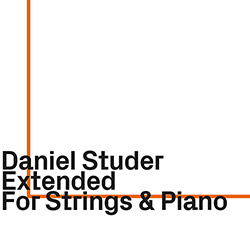
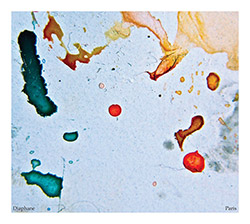
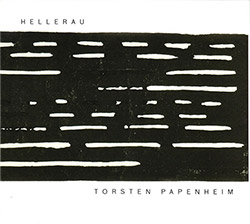
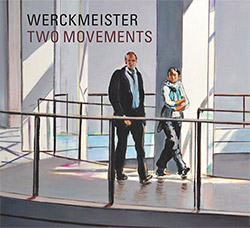
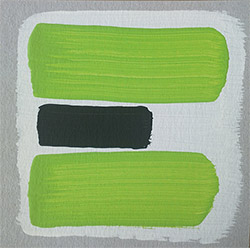

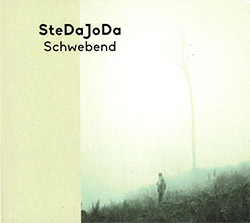


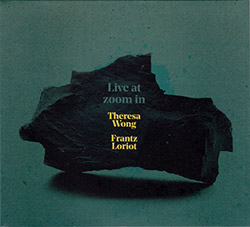
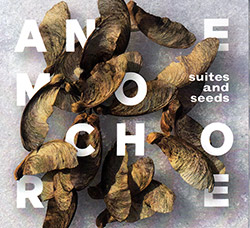
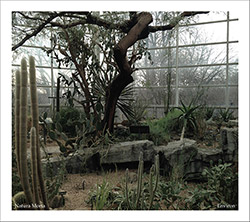

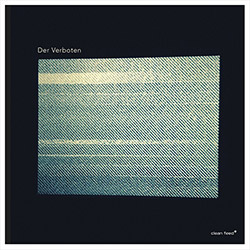
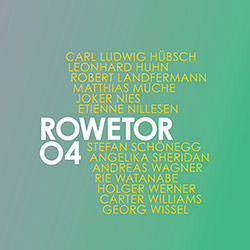
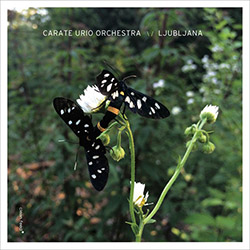
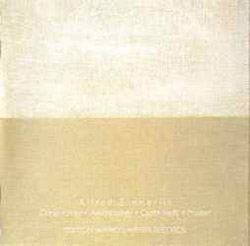
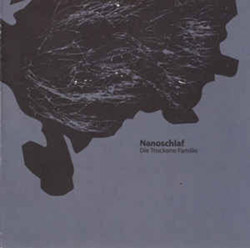

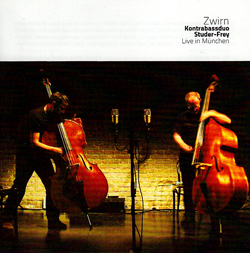
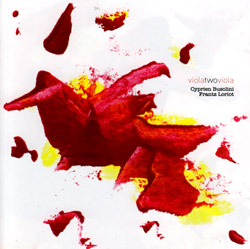
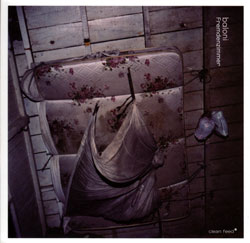
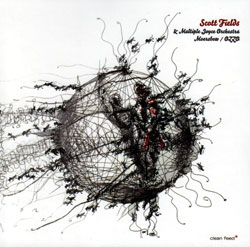





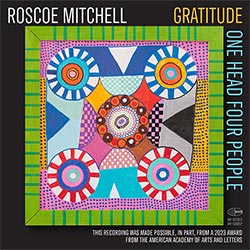
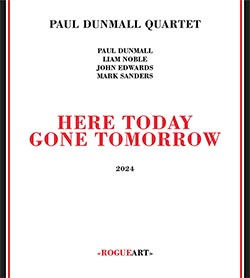
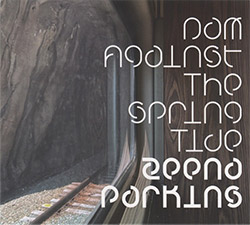
![Weston, Matt: Communism Has Appeared On The Scene [VINYL 2 LPs]](https://www.teuthida.com/productImages/misc4/35546.jpg)
![Coleman, Steve & Five Elements: PolyTropos / Of Many Turns [2 CDs]](https://www.teuthida.com/productImages/misc4/35476.jpg)
![Sorey, Tyshawn (w/ Diehl / Ragahavan): The Susceptible Now [DOUBLE VINYL]](https://www.teuthida.com/productImages/misc4/35477.jpg)


![John Coltrane Quartet (Coltrane / Tyner / Garrison / Jones): Impressions From Graz 1962, Revisited [2 CDs]](https://www.teuthida.com/productImages/misc4/35495.jpg)

![Guy, Barry / Ken Vandermark: Occasional Poems [2 CDs]](https://www.teuthida.com/productImages/misc4/34849.jpg)
![Novoa / Carter / Mela Trio: Vol.1 [VINYL]](https://www.teuthida.com/productImages/misc4/35236.jpg)


![Elephant9 : Mythical River [VINYL]](https://www.teuthida.com/productImages/misc4/34624.jpg)
![Evans, Peter (Evans / Eldh / Black): Extra [VINYL]](https://www.teuthida.com/productImages/misc4/35279.jpg)

![McPhee, Joe: Straight Up, Without Wings [BOOK]](https://www.teuthida.com/productImages/misc4/35454.jpg)
![Jeck, Philip: rpm [2 CDs]](https://www.teuthida.com/productImages/misc4/35455.jpg)









![Barker / Parker / Irabagon: Bakunawa [VINYL]](https://www.teuthida.com/productImages/misc4/35533.jpg)




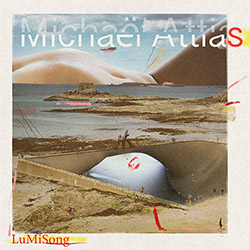
![Blaser, Samuel / Marc Ducret / Peter Bruun: Dark Was The Night, Cold Was The Ground [VINYL 10-inch]](https://www.teuthida.com/productImages/misc4/35492.jpg)






![Warren, Kenny (Warren / Hoffman / Ellman): Sweet World [VINYL]](https://www.teuthida.com/productImages/misc4/35451.jpg)




![Blake, Ran / Dave Knife Fabris: Live Amsterdam 2006, First Visit [CD + POSTCARDS]](https://www.teuthida.com/productImages/misc4/35275.jpg)




![DNS: Taking Big Bites Of The Khandas Three Cafes Deep [2 CDs]](https://www.teuthida.com/productImages/misc4/35334.jpg)




![Cleaver, Gerald: The Process [VINYL]](https://www.teuthida.com/productImages/misc4/34966.jpg)




![Alva Noto: HYbr:ID II [VINYL 2 LPs]](https://www.teuthida.com/productImages/misc4/35201.jpg)

![Baron, Derek / Luke Martin: Distinct and Concealed [CASSETTE + DOWNLOAD]](https://www.teuthida.com/productImages/misc4/35079.jpg)

![Lyle, Erica Dawn : Colonial Motels [CASSETTE + DOWNLOAD]](https://www.teuthida.com/productImages/misc4/35080.jpg)









![Sanna, Claudio: Compositori Sardi Contemporanei II [2 CDs]](https://www.teuthida.com/productImages/misc4/35317.jpg)







![Zurria, Manuel: Fame di Vento [3 CDs]](https://www.teuthida.com/productImages/misc4/35167.jpg)

![Granberg, Magnus / Nattens Inbrott / Skogen: Holde Traume, Kehret Wieder! [2 CDs]](https://www.teuthida.com/productImages/misc4/35038.jpg)
![Frey, Jurg: Outermost Melodie [2 CDs]](https://www.teuthida.com/productImages/misc4/35039.jpg)

![Pavone, Jessica: Reverse Bloom [VINYL]](https://www.teuthida.com/productImages/misc4/34895.jpg)




![Modney (Modney / Wooley / Gentile / Roberts / Pluta / Symthe / ...): Ascending Primes [2 CDs]](https://www.teuthida.com/productImages/misc4/34852.jpg)







![Elephant9 with Terje Rypdal: Catching Fire [VINYL 2 LPs]](https://www.teuthida.com/productImages/misc4/35355.jpg)
![Deerlady (Obomsawin, Mali / Magdalena Abrego): Greatest Hits [VINYL]](https://www.teuthida.com/productImages/misc4/34876.jpg)




![Haino, Keiji: Black Blues [2 CDs]](https://www.teuthida.com/productImages/misc4/35109.jpg)



![Surplus 1980: Illusion of Consistency [CD]](https://www.teuthida.com/productImages/misc4/35069.jpg)
![Staiano, Moe: Away Towards the Light [VINYL + DOWNLOAD]](https://www.teuthida.com/productImages/misc4/35037.jpg)



![Caveira (Gomes / Sousa / Abras / Ferrandini): Ficar Vivo [VINYL]](https://www.teuthida.com/productImages/misc4/34643.jpg)
![Gregg, J. J. / David Van Auken: Lunar Prairie [CD w/ DOWNLOAD]](https://www.teuthida.com/productImages/misc4/34611.jpg)

![Coultrain: Mundus [VINYL]](https://www.teuthida.com/productImages/misc4/32439.jpg)
![Mattin: Songbook #6 [VINYL]](https://www.teuthida.com/productImages/misc4/27317.jpg)
![Punkappella: Wake Up [7-inch VINYL]](https://www.teuthida.com/productImages/misc4/17519.jpg)
![Residents, The: WARNING: UNiNC.: Live And Experimental Recordings 1971-1972 [VINYL 2 LPs]](https://www.teuthida.com/productImages/misc4/31521.jpg)
![Coultrain: Phantasmagoria [VINYL]](https://www.teuthida.com/productImages/misc4/30142.jpg)
![Lennon, Sean Ono: Asterisms [VINYL]](https://www.teuthida.com/productImages/misc4/34517.jpg)

![Coley, Byron: Dating Tips for Touring Bands [VINYL]](https://www.teuthida.com/productImages/misc4/17906.jpg)

![Lost Kisses: My Life is Sad & Funny [DVD]](https://www.teuthida.com/productImages/misc4/lostKissesDVD.jpg)